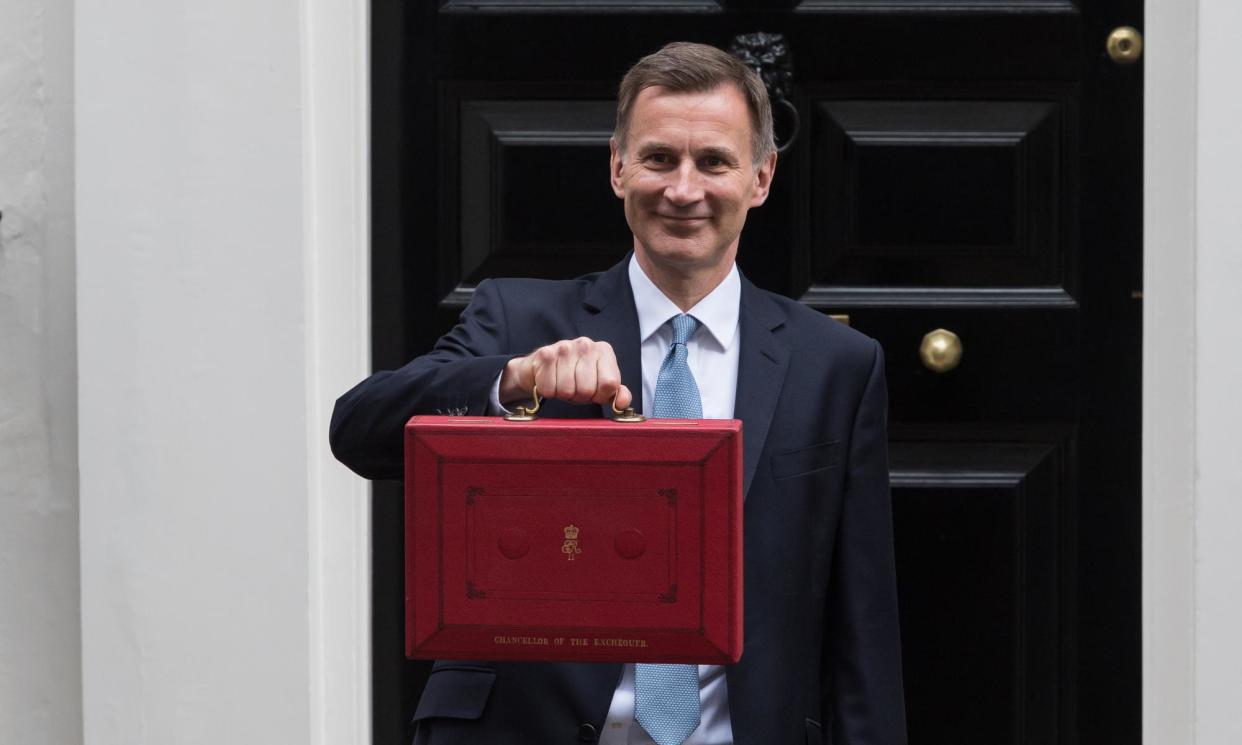Abolishing non-dom tax status would be humiliation for Tories, says Phillipson

It would be an “abject humiliation” for the Tories if they implemented Labour’s policy of abolishing non-dom status, the shadow cabinet minister Bridget Phillipson has said.
The abolition of the status, which gives generous tax breaks to some of the UK’s richest residents, has long been one of Labour’s headline policies, but the chancellor, Jeremy Hunt, is understood to be considering announcing a similar move in this week’s budget.
During an interview on Sky News’s Sunday Morning With Trevor Phillips, Phillipson said: “If they were to do that [abolish non-dom status] it would be an abject humiliation, because Conservative cabinet ministers have spent years rubbishing this idea.
“If they were to do it it would just demonstrate that it is Labour who are leading the charge when it comes to the battle of ideas in this country.”
Non-dom status allows foreign nationals who live in the UK, but are officially domiciled overseas, to avoid paying UK tax on their overseas income or capital gains. Rishi Sunak’s wife, Akshata Murty, has previously enjoyed non-domiciled status.
Hunt is also understood to be considering different ways to extend the windfall tax on oil and gas companies, another of Labour’s key policies.
Hunt on Sunday signalled plans to make cuts to the civil service and “cut red tape” to raise revenue. Speaking to Sky News, he poured scorn on equality and diversity initiatives in the civil service.
“I think that breaking glass ceilings should be the job of every boss in every public sector organisation but I’m not convinced that paying people large sums of money specifically to do those jobs is the right thing,” Hunt told Sunday Morning With Trevor Phillips.
“More broadly, I think the civil service should return to the levels that it was pre-Covid. There was a big expansion, completely rightly, during the pandemic. But we need to get back to those pre-pandemic levels.
“What we want is better public services. That doesn’t always mean spending more money. Sometimes it means spending less money but we need to run them more efficiently.”
At the last autumn statement, the government announced plans to cap the number of civil servants at 2019 levels over the next spending review period, meaning 66,000 jobs would be cut.
Wednesday’s spring budget would be “prudent and responsible” for long-term growth, Hunt said. However, he claimed countries around the world with lower tax “tend to grow faster”, citing North American and Asian countries as examples.
Related: The budget: what Jeremy Hunt needs to do – and the pitfalls he must avoid
According to the left-of-centre thinktank the Institute for Public Policy Research (IPPR), Germany and France have higher than average disposable incomes than the UK while also having higher tax, and in recent years many countries with high tax levels also saw higher growth in real wages over that period.
Hunt ruled out borrowing to fund tax cuts, insisting there would be no “gimmicks” in the spring budget, as it would “show a path” in the direction of tax cuts.
“All conservatives believe that the state has a moral duty to leave as much money in people’s pockets as possible because it belongs to the people who earn that money,” Hunt said.
“But we all know that it is not conservative to cut taxes, for example, by increasing borrowing because then you are just passing on the bill to future generations.
“So what you saw in the autumn statement was a turning point, when we cut 2p off the national insurance rate.”
The chancellor told the Sunday Telegraph the economic forecasts he received from the Office for Budget Responsibility last week had “gone against us”, leaving him with less fiscal headroom than he had hoped.

 Yahoo News
Yahoo News 
